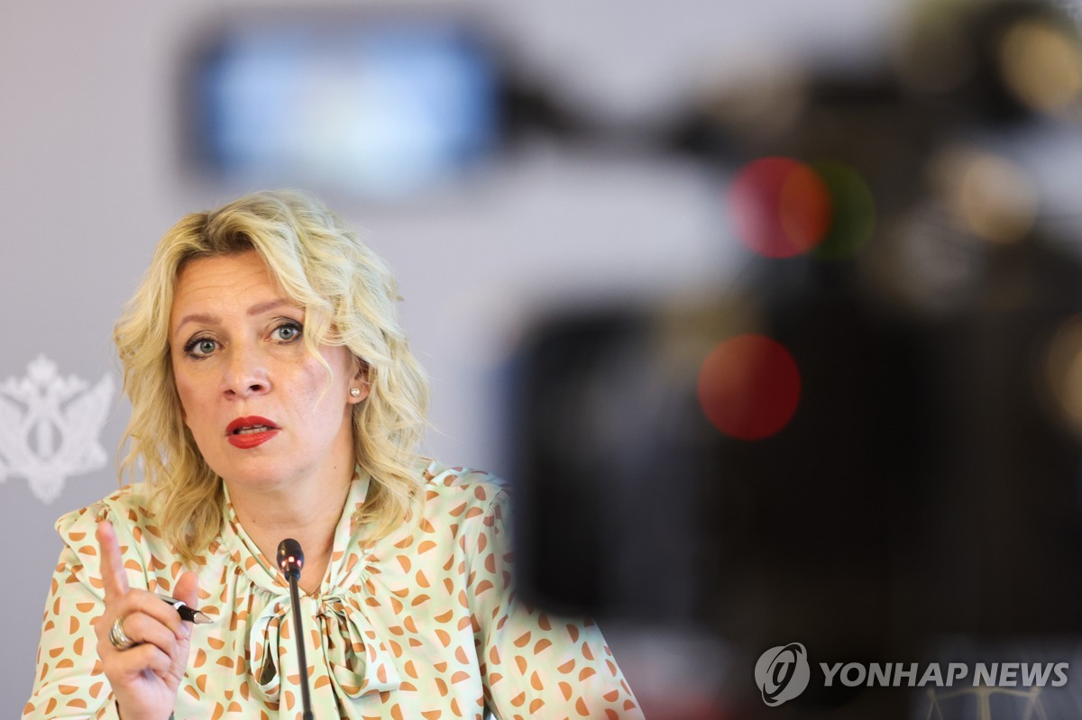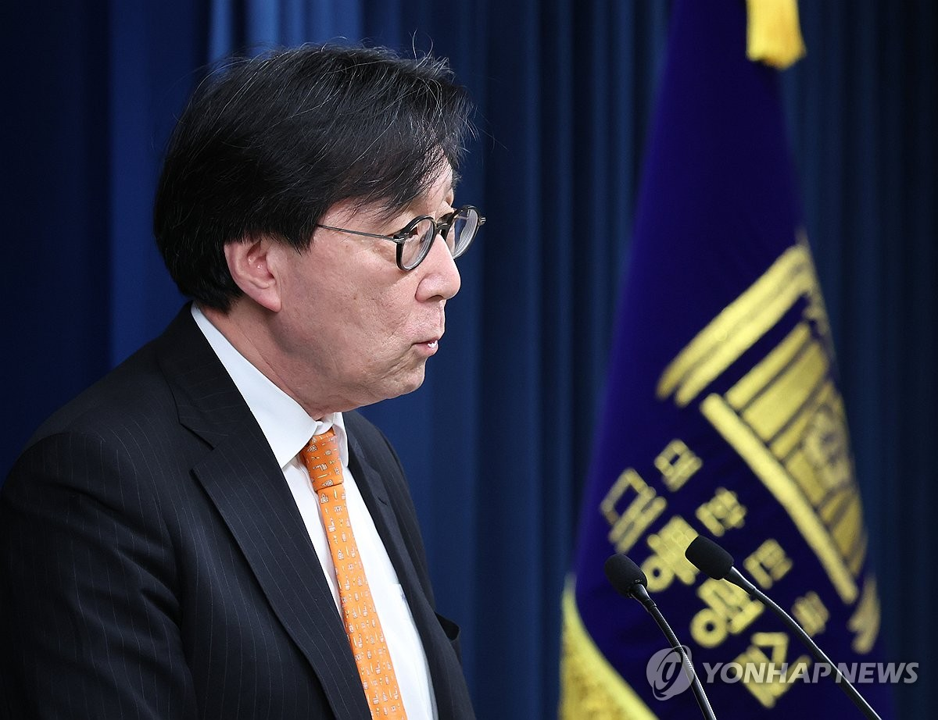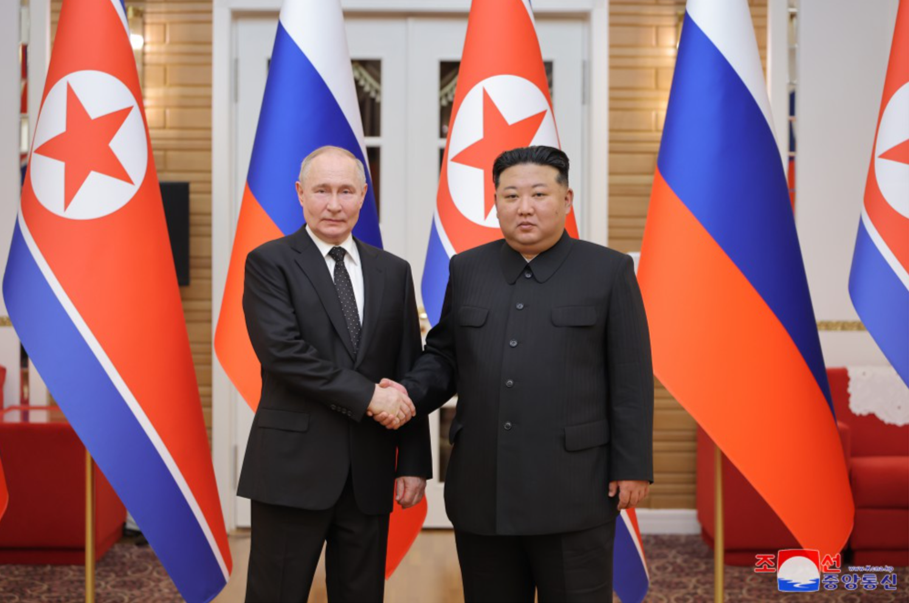On June 26th, two Russian officials called on South Korea not to provide weapon systems to Ukraine because it would have consequences for relations between the two countries and increase tensions on the Korean Peninsula. The comments come after South Korea’s National Security Adviser, Chang Ho-jin, said that the provision of any kind of military equipment would be based on several factors. The most significant of these factors is Russia’s stance on its relations with North Korea and whether it provides Precision Guided Munitions (PGMs) to North Korea.
Russian Officials’ Statements
On June 26th, Russian Foreign Ministry Spokesperson Maria Zakharova called for South Korea not to follow through with plans to send lethal military aid to Ukraine during the 12th St. Petersburg International Legal Forum. Zakharova said that Russia “would like to warn South Korea against taking ill-thought-out actions that could lead to irreversible consequences for Russia-South Korea relations.” The spokesperson said that the country will “not standby and watch as South Korean weapons and military equipment are handed over to Ukrainian neo-Nazis” so the country can murder “peaceful civilians” in Russian territory. Furthermore, Zakharova also urged South Korea to free themselves from the “manic dependence” on the United States, “stop being an American vassal, and realistically assess the emerging situation on the Korean Peninsula.”

Russian Security Council Deputy Chairman Dmitry Medvedev made similar comments about South Korea’s reviewing plans to send military equipment to Ukraine on his social media page. He said that Russia will fulfill all aspects of the new treaty the country signed with North Korea, including the articles on mutual security. However, Medvedev pointed out that relations between Russia and South Korea will “deteriorate further, considering their mindless participation in the anti-Russian sanctions.”
South Korean National Security Adviser Comments
Chang Ho-jin, South Korea’s National Security Adviser, said the country would review the potential to provide weapon systems to Ukraine on June 21st. Chang made the comments after North Korea and Russia signed a comprehensive strategic partnership during Russian President Putin’s visit to North Korea on June 20th. The agreement has an article that allows either country to provide the other with military assistance if they are involved in a war. Chang said that South Korea has “various options for providing weapons, and our position on the recent developments between Russia and North Korea depends on how Russia approaches the situation going forward.”

Chang, however, said on June 23rd that South Korea “will not be bound by anything with regard to its assistance to Ukraine if Russia provides North Korea with precision weapons.” The national security adviser emphasized that the number of weapon systems or munitions depends on the extent of Russia’s military cooperation with North Korea. Chang said that there would be no line remaining for South Korea, depending on “if Russia gives precision weapons to North Korea.”
South Korea currently supplies Ukraine with nonlethal equipment, such as first-aid kits, medicines, portable mine detectors, and protective suits. However, the country has a policy that prohibits it from providing lethal aid or weapons to countries at war.
Comments by Russian and South Korean Officials Illustrate Dueling Concerns
The comments point to Russia’s concern about the system’s potential impact on the conflict with Ukraine. The comments by Chang point to South Korea’s worry about Russia providing North Korea with Russian made PGMs or the technology to domestically manufacture PGMs. The recent comments by the Russian officials follow Putin’s warning to South Korea that it would be a big mistake if the country provided lethal weapons to Ukraine and that Russia would make “respective decisions” if South Korea decided to provide weapons to Ukraine. However, the comments illustrate Russia’s concern that South Korea will supply Ukraine with weapon systems. One advantage Ukraine would gain is the ability to conduct long range precision strikes using the K239 Chunmoo Multiple Rocket Launcher System (MRLS). The Chunmoo has comparable munitions and range to the HIMARS without the limitations, such as the United States prohibiting Ukraine from striking targets inside Russia.
Furthermore, South Korea could provide Ukraine with the AT-1K Raybolt Anti-Tank Guided Missiles (ATGMs). The Raybolt would allow Ukrainian infantry units to target and destroy armored vehicles and fortifications using either the man-portable launchers or K153 ATCM Carriers. The K153 would be especially useful to Ukrainian units since it would allow them to use ‘shoot and scoot’ tactics to destroy targets along the frontline while mitigating the potential for counterfire by Russian forces. South Korea would also provide the launcher systems to Ukraine for installation on locally produced armored vehicles or on vehicles donated by western countries.
South Korea could provide air defense systems such as the Chiron Man Portable Surface to Air Missile System (MANPADS), the K-SAM, or the M-SAM-II systems. Ukraine would greatly benefit from these systems since they would increase the country’s ability to defend infrastructure and military installations from strikes from Russian airstrikes and loitering munitions such as the Geran-2. The country would also use the K-SAM-II system to conduct ambushes against Russian aircraft in the same manner as the Patriot missile system. The Ukrainian military would use the Chiron MANPADS and the K-SAM systems to defend against ballistic, cruise missile, and loitering munitions strikes. Ukraine would deploy the short range systems to the frontline area to protect units deployed in these areas from Russian air and missile strikes.
Another possibility is for South Korea to directly supply Ukraine with 155mm artillery shells from its weapons stocks. Ukraine would greatly benefit from any 155mm artillery shells that South Korea would give to the country since the country relies on foreign donations or supplies from the United States or European countries. Furthermore, South Korea would likely provide Ukraine with similar quantities of artillery shells as North Korea does with Russia because the country also has large stockpiles. The supply would also not face any significant domestic political backlash since both political sides in South Korea largely approve of the potential provision of artillery shells to Ukraine. However, the South Korean artillery shells are also of higher quality than the shells North Korea provides to Russia.
South Korea is likely worried about the possibility that Russia would provide North Korea with PGMs or the technology necessary to manufacture guided munitions. South Korea views this as crossing a red line since it would allow North Korea to increase its precision strike capabilities. Chang’s comments illustrate this concern because Russia could activate its agreement with North Korea to gain access to additional munitions and give military technology transfers to the country in return. One of the potential transfers would be Russian-produced PGMs, such as the Krasnopol precision artillery rounds, Kalibr cruise missiles, and various 122mm, 220mm, and 300mm rockets. These munitions would allow North Korea to conduct precision strikes against South Korean targets such as cities, military facilities, and troop formations. Furthermore, Russia would transfer the technologies necessary for North Korea to develop a domestic PGM manufacturing capacity.

